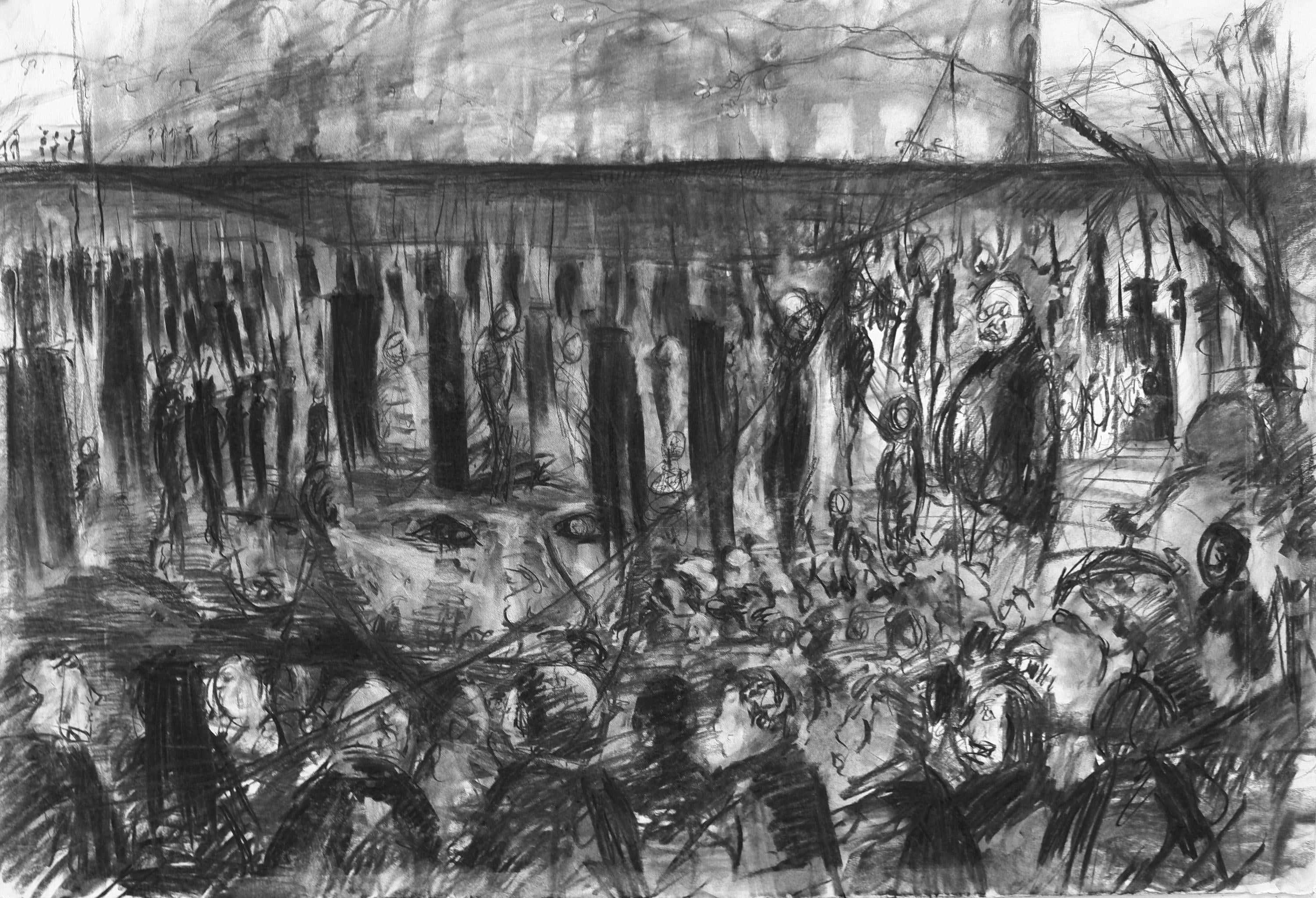Of the thesis entitled:Darkness Encountered in Light

The old axiom that history is doomed to repeat itself seems to be true in the contemporary world. Ideologies of hate and division are having something of a resurgence, despite our common cries of ‘never again.’ We can trace these divisive identities from our archaic sacrificial rituals, through the horror of colonialism, and into the genocides of the modern age; apparently violence is here to stay. While there is generosity, compassion, and empathy that surfaces alongside this destruction, it seems to be swept aside all too readily in favour of division, blame, and separation. It is in this context that I ask what role our presentations of societal violence play in the perpetual emergence of divisive ideologies.
Drawing on the work of Girard, Kristeva, Sen, and Arendt amongst others, I argue that our presentations of past atrocity should focus on the presence of violence within our familiar, normative realms. This unseen presence can be revealed through creative praxis, which frames our sense of orientation with the world. I focus on art, architecture, and literature as forms of creative expression where violence is made sensible. These expressions can work to actively undermine the divisive cultural ideologies that justify atrocity by reframing how we relate to extreme societal violence. Through three case studies of memorial architecture I show how our creative expressions can both undermine and perpetuate the divisions inherent to the violence they discuss. My written and made analyses explore how the stories and methods of storytelling contribute to the revelation of the uncanny presence of violence, altering our understanding of normalcy.
By presenting violence without the space for improvisation that fosters life’s capacity to grow, architects risk obscuring our ability to empathize, limiting our understanding of humanity. An embrace of uncertainty carries the potential for a future that affirms life, a future where divisive ideologies are acknowledged as illusory remnants of a more violent past, no longer dominant in our visions of the world we all share. It is my hope that through refocusing how we express mass violence, we can better guard against the incendiary ideologies that justify it. Within light there is darkness; in darkness, light.
I would like to thank my supervisor, Dereck Revington, for his consistent guidance and support during these formative years for me. He has helped me expand my understanding of architecture and focus on my own interests within the world, encouraging me to explore and create, attentive of the past, hopeful of the future. To Robert Jan Van Pelt, whose patience and insights on my work have brought focus and rigour to my thought: thank you. Your willingness to look at darkness with clarity has shown me the importance of grappling with the uncomfortable. I want to also extend my thanks to Jonathan Tyrrell, my external reader, for agreeing readily to read my work with a critical eye.
My first steps into this degree were shaped by my conversations with Tracey Winton, whose engagement with storytelling in its broadest sense encouraged me to read, write, and draw, always looking to search out something new, interesting, and above all inspiring.
To my family, for listening to my endless need to discuss my work and questioning my assumptions; the questions posed during sleepy weekends grounded this work in a non-architectural world that is, of course, part of this field. To my friends, thank you for the dinners and movies that helped keep us all sane. To Omar, for chess, coffee, and the “violence of community.” Lastly, I would like to thank Carolyne for listening with a sometimes weary ear to my thoughts and worries on this work, life, and the passage of time.
This exploration would have been a lonely and infinitely more difficult one without you.
The examining committee is as follows:
Supervisor:
Dereck Revington, University of Waterloo
Committee Members:
Tracey
Winton,
University
of
Waterloo
Robert
Jan
van
Pelt,
University
of
Waterloo
External Reader:
Jonathan Tyrrell
The
committee
has
been
approved
as
authorized
by
the
Graduate
Studies
Committee.
The
Defence
Examination
will
take
place:
Wednesday,
December
18,
2019
at
2:00pm
in
the
loft.
A
copy
of
the
thesis
is
available
for
perusal
in
ARC
2106A.